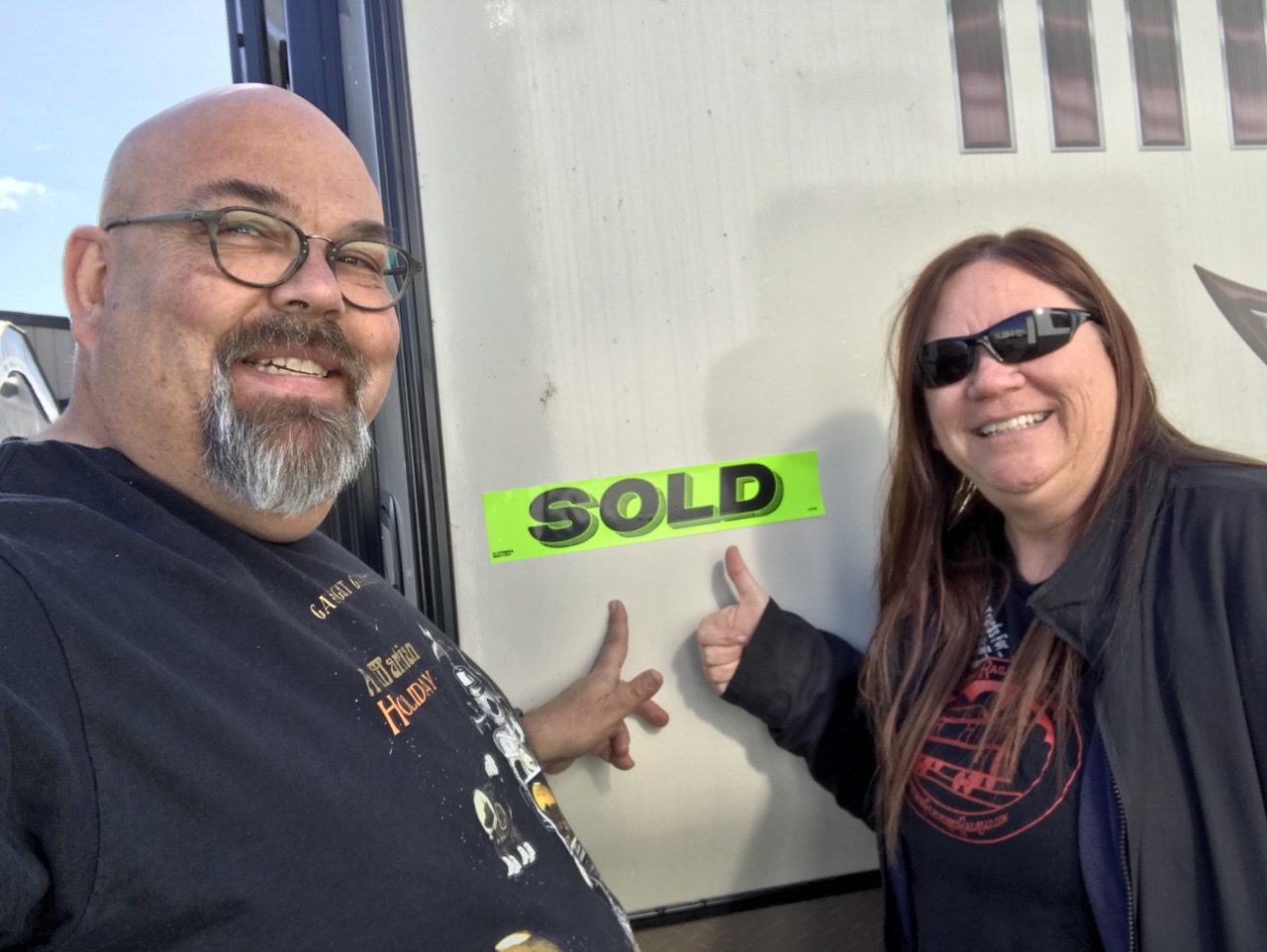The 10 year rule at RV parks: is it legal and why are they doing it?
Is there really a 10 year rule and is it legal?
There are campgrounds that are excluding RVs over 10 years of age in their campgrounds, which has created a lot of controversy among campers, particularly those who love vintage RVs. What’s the reasoning behind this and how can we change this so all RVs are accepted? I talked with several campground owners about this to get an idea of their thinking.
You won’t find this is universal at all, first of all. It’s predominantly the case at private campgrounds. Your state campground, public lands and those sorts of places don’t restrict the age of vehicles that can camp there, but there may be restrictions on the size only because many public lands were built many, many years ago before RVs got to be the size they can be today.
So why would a campground not allow older RVs into their park in the first place?
Speaking with one campground it was clear from the photographs on this campground’s website that they had a very specific customer in mind. With photos of premium-branded diesel pushers with the occasional high-end fifth wheel sprinkled into the mix, it told the story of who they wanted spending their money at this campground. And they got it.
In talking with the manager of the campground she basically said that she wanted a higher-end clientele and older RVs just don’t hold up as well. In her words, the paint just starts looking shabby and, pretty soon, it makes the park look bad. She claimed that this would dissuade the clientele who were her regular customers and who tended to stay for an entire season.
Indeed the California desert location of this campground near fancy stores and expensive homes definitely spoke to the fact that they were appealing to wealthier snowbirds.
There is some credibility to the fact that the stickers that are on most older RVs certainly do not survive well. While you can protect the surface of an RV and have it look great well past the 10 year mark, it’s pretty rare that the stickers and decals suffer the same fate unless the RV is kept in a garage of some sort. Being out in the sun they typically begin to peel and fade which is a big minus to some.
In fact, at the dealership I worked at we got an older travel trailer that had been kept in a barn and the stickers looked as good as new. The owner admitted that they waxed the trailer twice a year and always washed it when they brought it home from an outing.
Actual Reasons
One of the parks that limits RV age gave me an actual logical reason for their policy. I would have never expected that some campers simply overstay their welcome and a few have actually refused to leave altogether. In their area, the sheriff then puts a lien on the RV and it is sold at auction.
As with many law enforcement procedures this can take a while and the campground loses whatever revenue they might have otherwise earned from the site while this procedure drags on. I can’t imagine just parking an RV and letting it sit though that brings up an odd story from a campground I actually witnessed.
A big fifth wheel rolled into a campground with a nicer, but older truck towing it. Both the trailer and the truck were easily 20 years old but were also in really nice shape. The camper backed into their space, leveled their fifth wheel side-to-side and, as they were about to unhook the truck, had a massive heart attack and just died on the spot. This was only 2-3 spaces from where I was camping.
I didn’t witness the death nor was I there when it happened. I was pulling my trailer in to the campground and thought it odd that someone would just leave their truck attached to their trailer with the truck sticking out into the road but I had arrived the day after this had happened.
Due to the oddity of this situation I kept in contact with the campground and, naturally, the heirs were at odds with how to handle the rig and couldn’t agree with one another, so the rig absolutely overstayed its welcome and the campground did have to sell it at a lien sale. With the cost of the legal fees and all of the other aspects of the process, they actually came out behind plus had to cancel people’s reservations at the height of the season while this older fifth wheel and truck, still hooked to the fifth wheel and extending into the road, were taking up a camp site.
I also had an exchange with a campground owner whose insurance company specifically prohibits RVs over 10 years of age on the property due to the likelihood of RV electrical failures which could cause fires. As difficult as it is for some parks to get insurance, when a company is willing to cover you but has certain stipulations you often have no choice but to follow those guidelines. When those include prohibiting RVs over 10 years in age, you’re stuck as a campground owner having to follow that rule or risk having your insurance coverage cancelled.
Another reason
I had another campground tell me that simply establishing this rule was easier than telling the teenagers who operate the front desk to only let in well maintained RVs. While the campground owner appreciated vintage rigs, they said the perception of what was nice and what wasn’t was not nearly as easy to explain to the people they were able to attract to work at their front counter in this college town.
Furthermore, if the desk staff had leeway with the rule then there was room for argument and the campground owner didn’t want disgruntled prospective campers to argue with her front desk staff. In his opinion their judgement wasn’t anywhere as good as his.
How to overcome the 10 year rule
We are huge fans of vintage RVs and really lust after these cool retro rigs. Several of the campgrounds I spoke with said that if you can email them photos of your rig and it’s one of the cool old RVs we all are Jonesing after, it’s in.
One campground also indicated that they were more inclined to let someone with an older rig stay for a few days rather than an extended period of time. That’s where they had been burned in the past.
As mentioned previously, the stickers are the part of the RV that age the most poorly. Perhaps, if yours have aged poorly, consider peeling them off altogether. This is fairly easy to do with a blow dryer and a tremendous amount of patience. I noticed a lot of replacement custom RV stickers on Etsy if you’re looking to keep the same look or the original stickers for your RV may be still available from the manufacturer through a dealer.
What right to they have?
Remember private campgrounds are private properties. Just like the fact that you can’t bring guns or wear attire associated with gang membership into Disneyland, or a restaurant can say “no shoes, no shirt, no service,” campgrounds can set whatever rules they want so long as they don’t violate normal discrimination laws. In other words, they can’t restrict your camping there based on your race or religion but they do have the right to create other restrictions.
In summary
While this problem is a big, big deal on many social media platforms it’s less so in the real world. Those parks that have implemented restrictions often will bend the rules for cool, older rigs that have that vintage vibe. There are also public lands, state parks and other types of campgrounds that are generally less expensive and also have no restrictions on the type of vehicle allowed.
What has been your experience? I’d love to learn what you’ve had happen when you go camping. As always, I hope it was a StressLess Camping experience.







